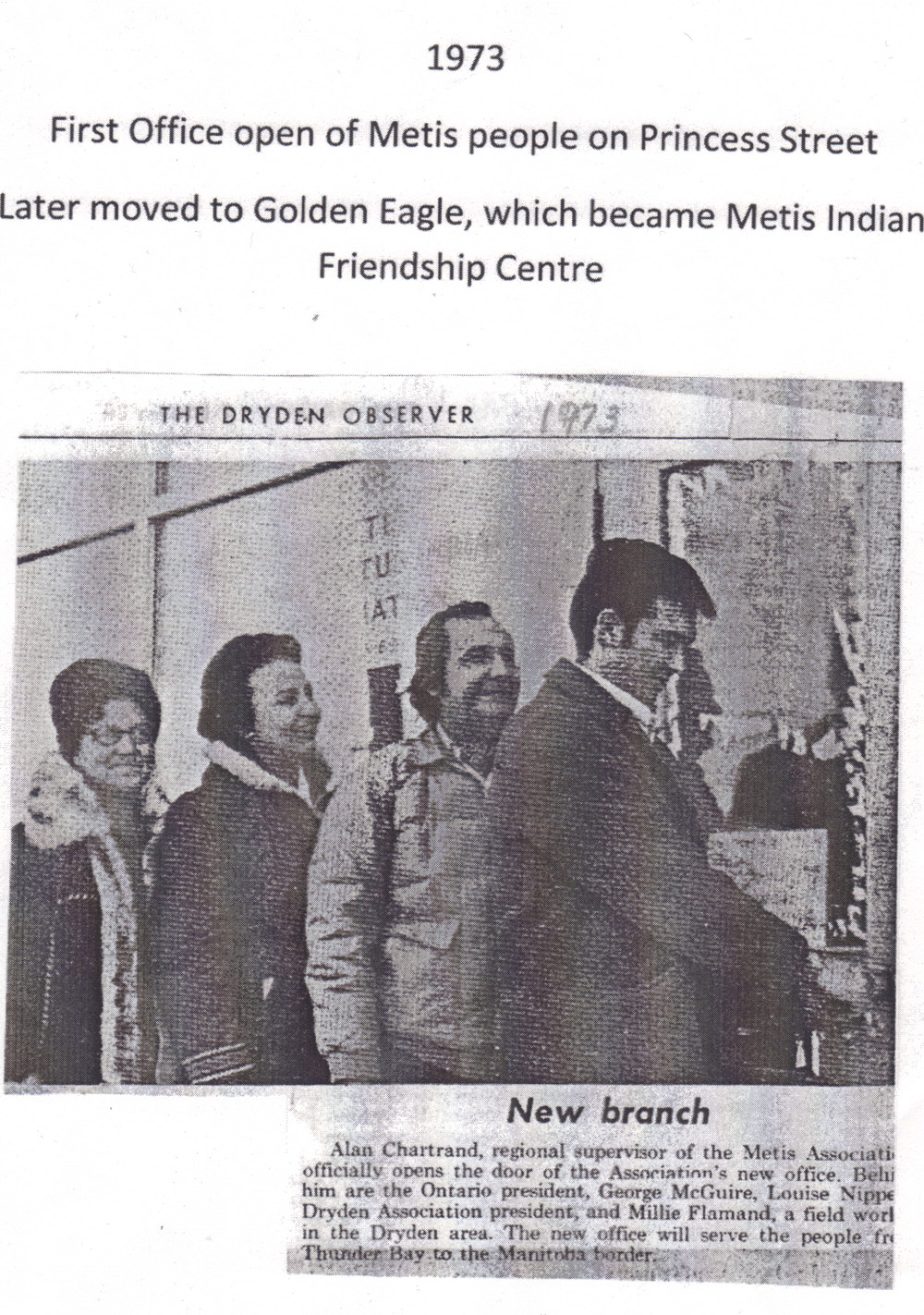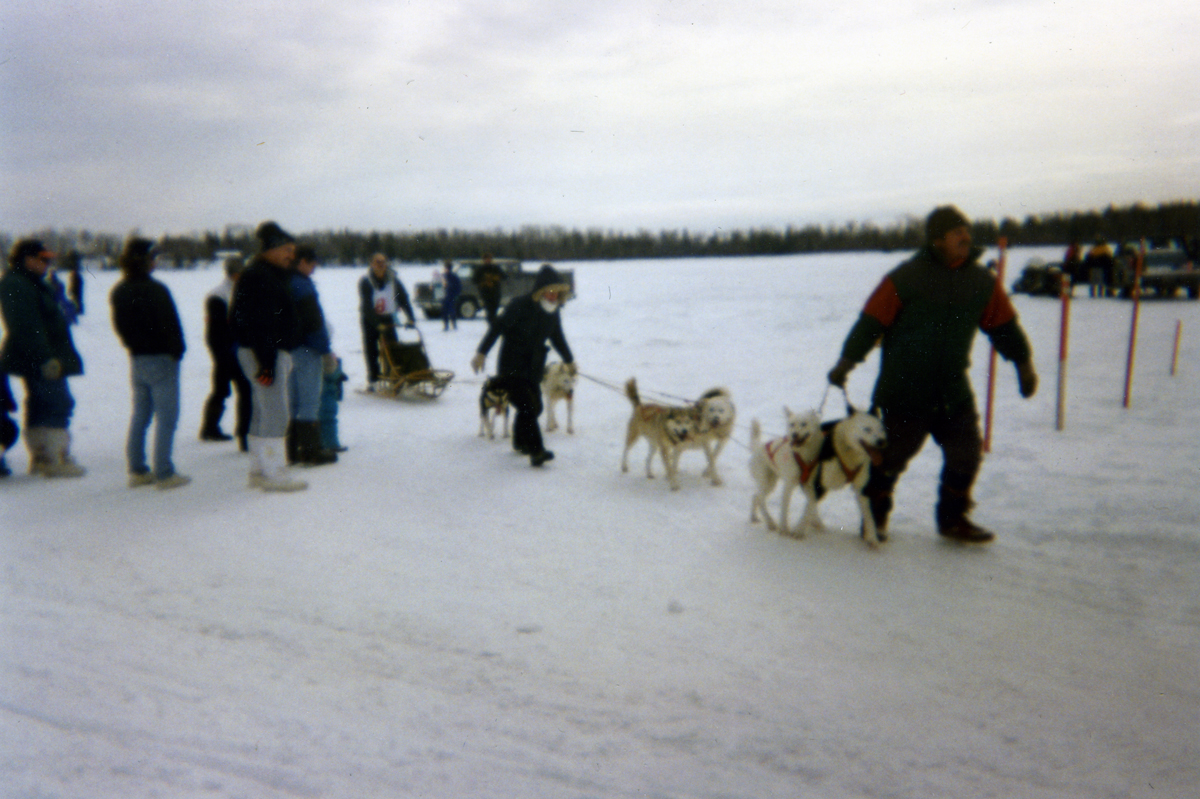
Dryden has in its midst a compassionate and caring individual, Millie Flamand who volunteers at the Dryden Aboriginal Women's Resource Centre (DAWRC). Unfortunately today, all too often many Aboriginal people find themselves in a cycle of poverty, neglect and substance abuse. The DAWRC is an organization where a positive impact can be experienced to break this vicious cycle.
Millie Flamand was born second in a family of fourteen children and raised in Camperville, Manitoba. Camperville is a Metis community in northern Manitoba. She attributes who she is today to her mother's and father's compassionate spirit. Her parents taught her the importance of sharing and caring for other individuals. For instance, Millie's father was the only person in Camperville who had a large sailboat. She recalled many times when members of the community would wait at the dock for her father to return from a fishing expedition. When her father returned he would distribute the caught fish to those waiting at the dock. Millie and her siblings would divide the catch evenly and distribute it to those community members who were unable to make it to the dock. Her father's sharing was not limited to fish but also included moose and elk meat, ducks and duck eggs. Her father had a big heart, and fishing and trapping for him was never about the money. Millie explains that her inclination to help people is a result of her father's unselfish nature.
Millie attended school up to the age of fourteen, which at the time was the maximum age that Metis children could attend school. She also started working at that age and held a number of different jobs. One of her jobs, still a teenager, was working for the local school principal where she was a truant officer. Her responsibility was to visit the homes of the non attending students and try to persuade their parents to send their children to school. If needed, Millie would personally drive the children to school. Eventually she became the truant officer for the entire school board. This employment gave her a lot of experience in the field of education and helpled her develop the necessary skills to formulate committees and organizations that would benefit those in need. The first organization that she was a part of, helped raise the monies needed to bring a Dental Van to the Camperville community and service the dental needs of the children.
These modest beginnings were the forerunner of many other associations that she was instrumental in forming. The first organization that she played a role in establishing was the Manitoba Metis Federation (MMF), and the initial meetings were held in her home in Camperville. The MMF is still in existence today. In 1964, Millie and her family moved to Dryden. In 1971, she played an important role in the formation of the Dryden Metis Association (DMA) and in 1973 she helped with the opening of a DMA office in Dryden. Even then, Millie was involved in the betterment of housing conditions for Metis families, an issue that has come to the forefront only during the last few years.
One of the first Metis floats that was entered into the Christmas parade in December 1972. Millie did her best to integrate Native people with mainstream society
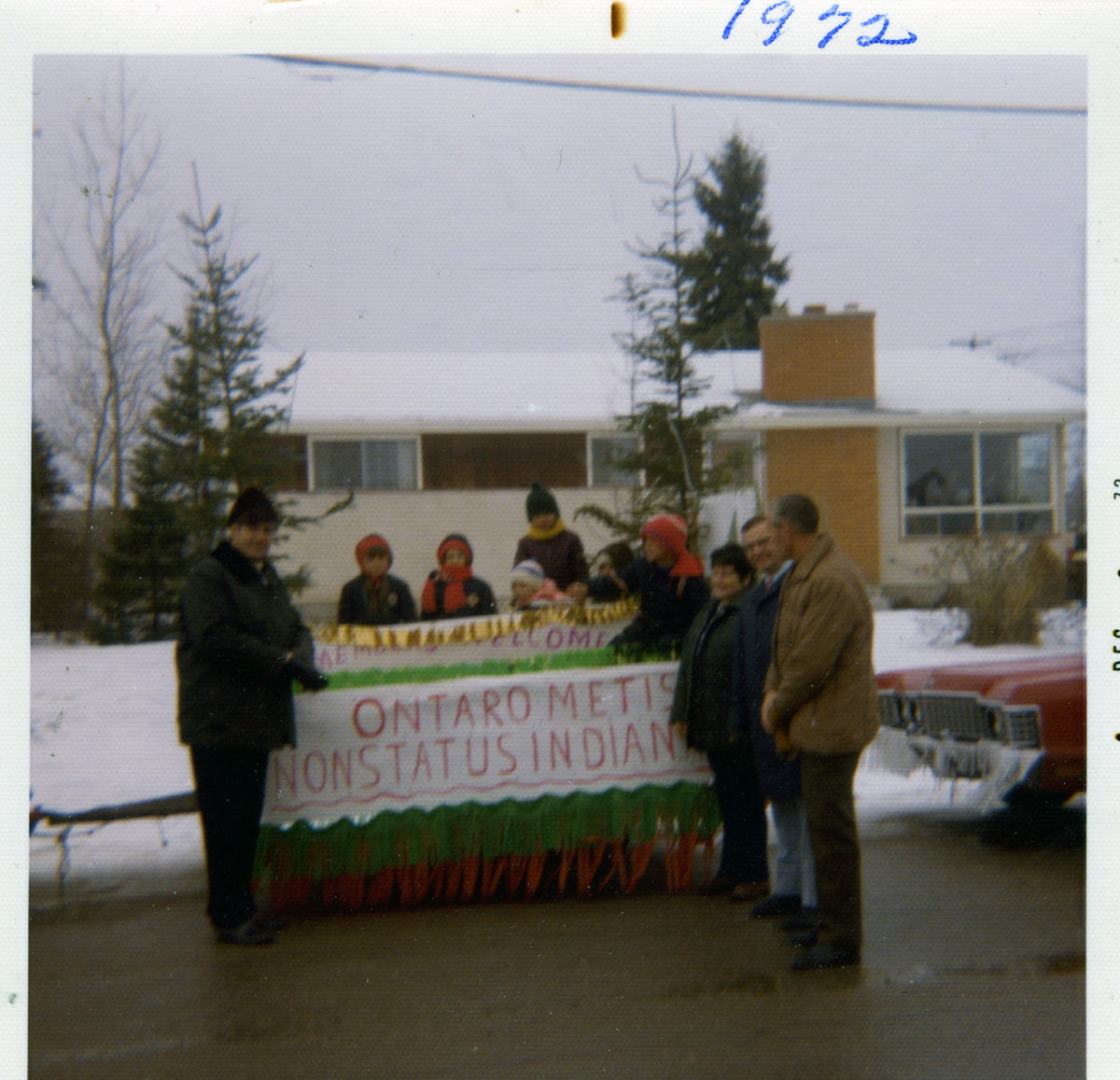
Millie has served on a number of National and Provincial Boards and organizations. She spent five years with the Ontario Metis Association of Ontario, twenty-two years with the Ontario Native Women's Association and one year with National Women of Canada. At that time, employment equity was an issue, so she channeled her energies toward training and recognition of women in the workplace. By 1999 Millie's volunteer efforts were recognized and she received the top service award given to an Ontario citizen who actively volunteers.
The period between 1982 and 1984 were very important as the Metis were officially recognized under the Charter of Rights as Aboriginal people. Under the Canadian Charter of Human Rights, there are three groups of people recognized as Aboriginal. There three groups are the Inuit, the First Nation people and the Metis people. This recognition gave Millie the legal parameter to organize events and seminars specifically suited to women of Metis heritage.
Millie worked at the Dryden Paper Company for twenty years. After leaving the Dryden Paper Company, Millie devoted all of her energies toward volunteering. She chaired and participated in several seminars for Ontario Metis and Non-Status Indian peoples. Housing, employment, legal aid, education and other topics as they related to Metis and Non-Status Indian peoples were the topics of discussion and training. To help conduct these seminars personnel from the government and other social agencies across Canada were approached.
Early pictures of the mukaluk events on Lake Wabigoon.
The original mukaluk events were organized by the DAWRC 
Her determination to continue helping Aboriginal women at the grass roots level led to the formation of the Dryden Aboriginal Women's Resource Centre (DAWRC) in 1990. The organization began without funding, on a strictly volunteer basis, and the members operated a second-hand store to help pay for the centre's bills. DAWRC has been incorporated as a non-profit organization since June 1991. At the time of it's opening, employment equity was an issue, therefore DAWRC directed their energies toward obtaining training and recognition for working women.
DAWRC is the only organization of its kind in Northwestern Ontario. The services offered by DAWRC are extensive and far-reaching. Much of the work is related to medical referrals, translating services for those whose English is limited and offering transportation services for medical appointments. Other assistance services are counseling, referrals to Sunset Counseling, treatment for substance abuse, helping foster children transition into the community, and dealing with young people on probation for various offenses. Millie, who volunteers at DAWRC ensures that there is funding for workshops on parenting, violence in the home, as well as culture and language services.
DAWRC has also partnered with Adult Education at Keewatin Patricia District School Board. Native students who initially do not wish to attend the high school, have accessed courses in Ojibway language and culture, job readiness, computer literacy and courses in basic mathematics and English needed for high school graduation. DAWRC has also joined with KPDSB to allow students the option of pursuing cooperative education placements and alternative education classes.
Millie adds that other necessary skills that are not part of traditional Native culture are taught. Such skills are important for success in the Canadian workplace. An example of such a skill is the importance of arriving to work on time and adhering to other time line requirements.
Millie strongly believes in teaching parenting skills to her young clients. It is important that parents "stay close and enjoy their children".
Funding is still an issue with DAWRC. Though there is funding available, the problem is that this funding does not reach the grass roots level where individuals can directly benefit. Funding for an organization such as DAWRC is often limited to tasks such as bookkeeping. Millie also states that there is too much politics and too much control by Provincial Organizations. She continues to advocate that funding reach the level where individuals can directly benefit.
Millie continues to volunteer assiduously for Native and non Native families who require assistance. It is not uncommon for her to be absent from DAWRC as she is driving a disadvantaged family to a medical appointment in Kenora or Thunder Bay.
Millie also understands the problems faced by many Native people in Dryden. When she sees a destitute individual on the street, she goes out of her way to drive that person to their home or she will initiate the process of finding adequate accommodation for that person.
Millie works tirelessly to help people in this community strive for a more productive and satisfying life. Her efforts should continue to be recognized as she and the DAWRC constitute an important role in the decision-making process concerning housing, employment and educational needs of Native people in this community.
Merv Flammond, Millie Flammond and Cheryl Meekis at the DAWRC.
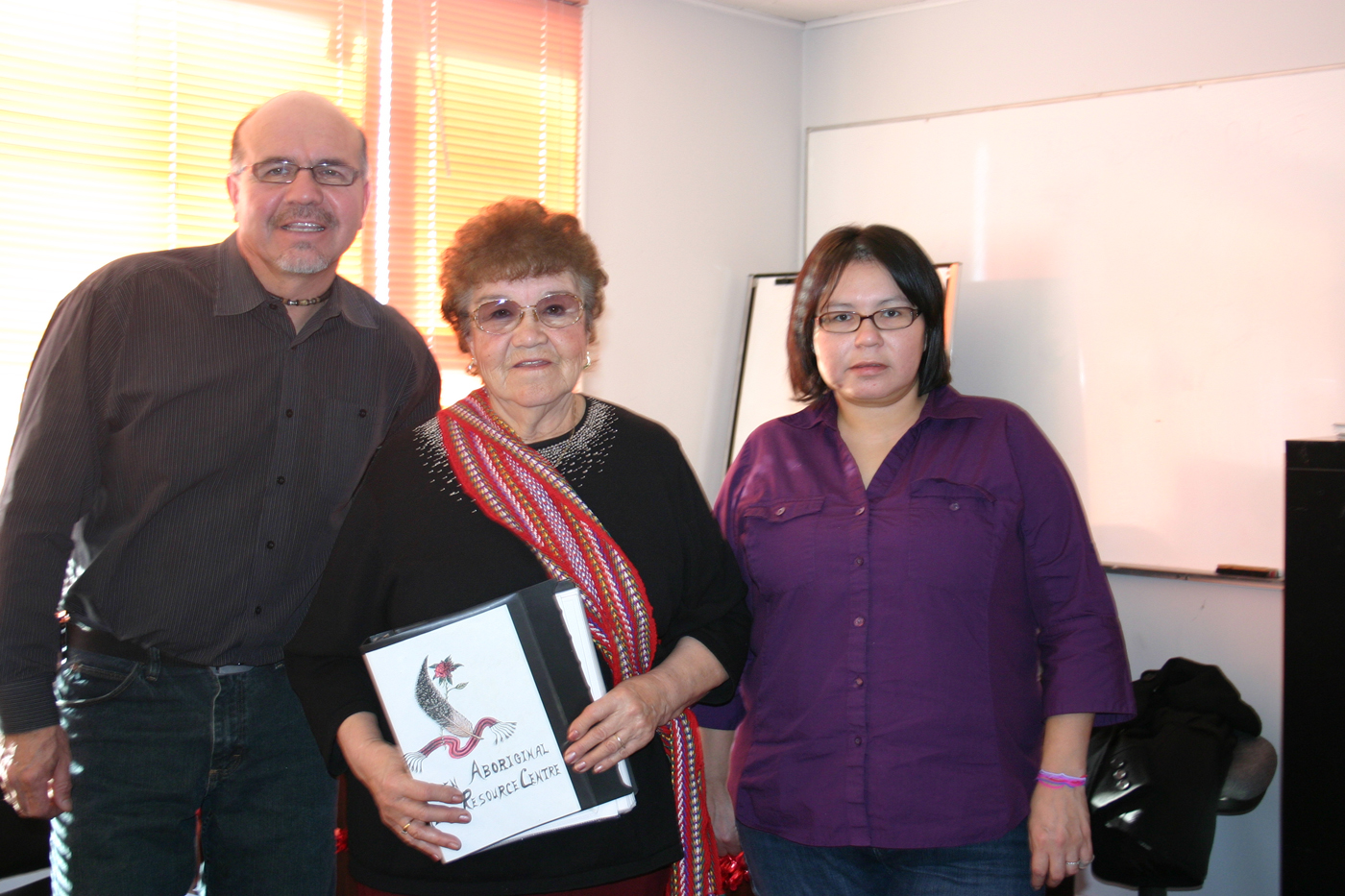
Millie received this plaque as founding member of the Metis movement in Ontario
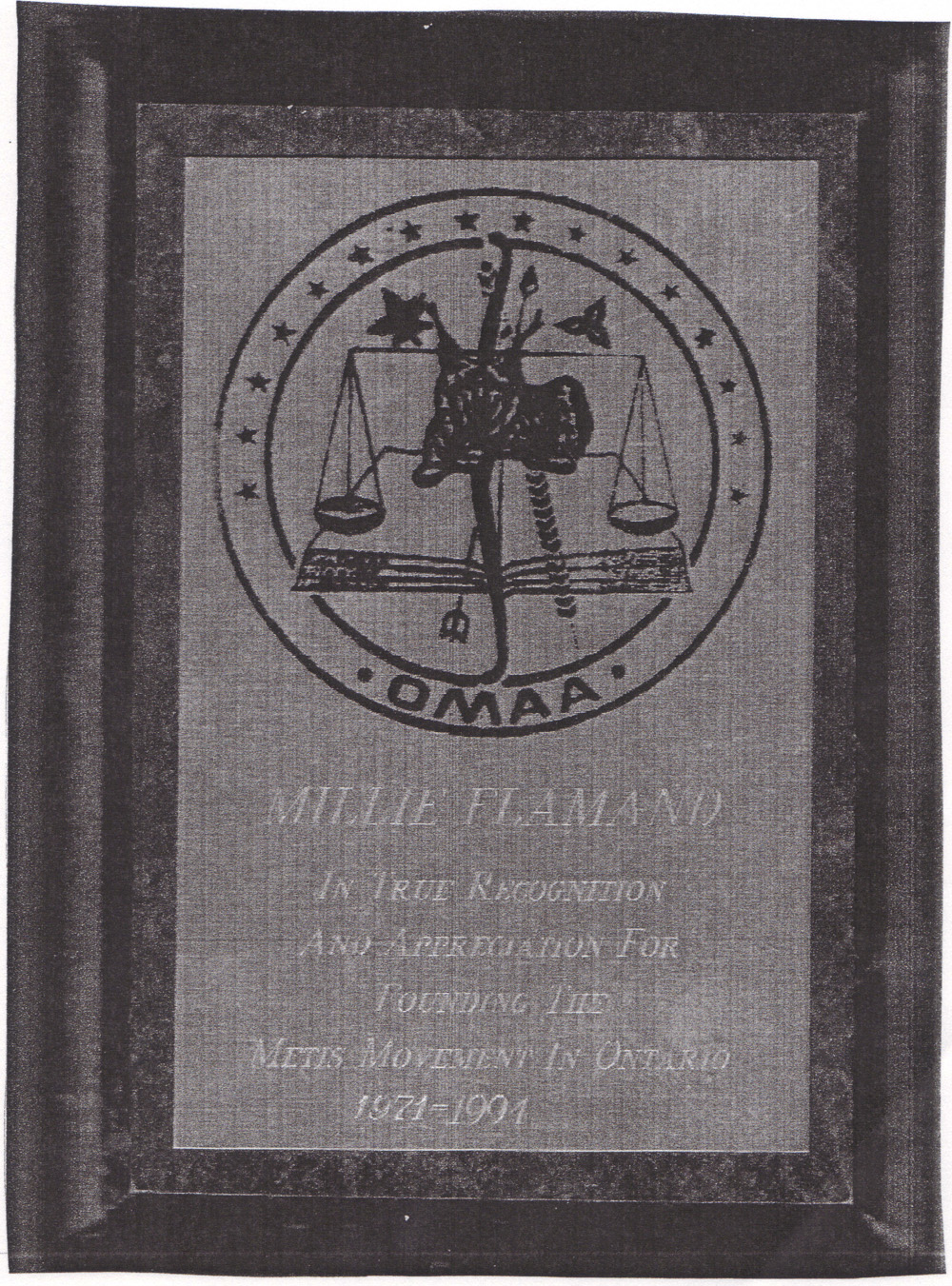
A newspaper article that lists Millie along with elders who were involved with DAWRC from the beginning
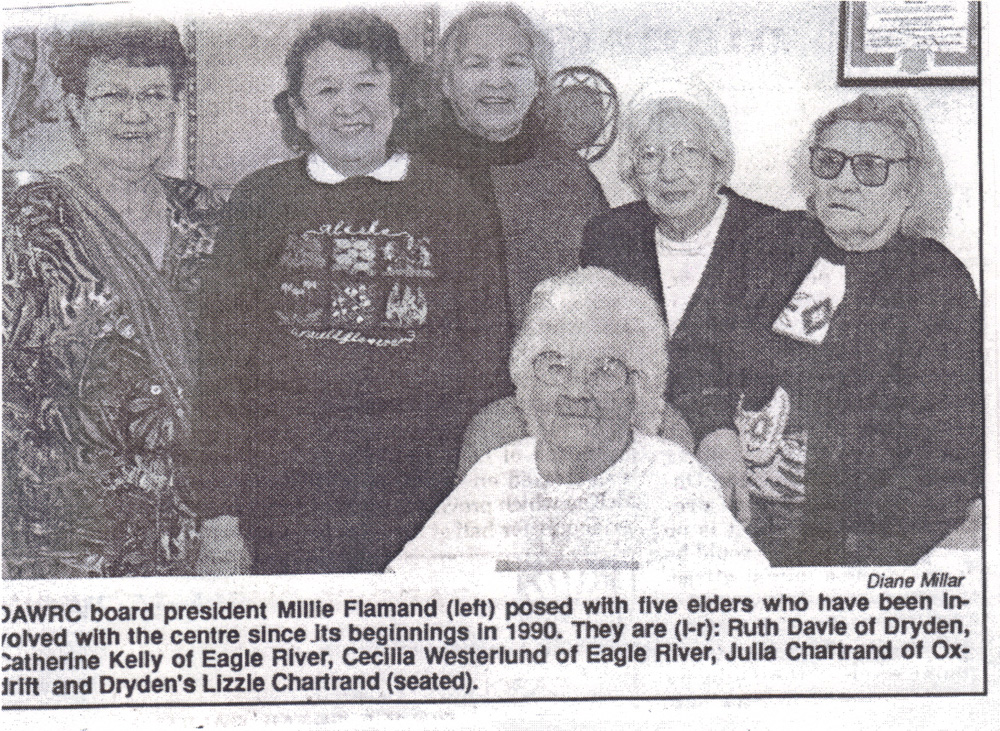
Early picture of the Mukluk celebrations initiated by Dryden Metis Association
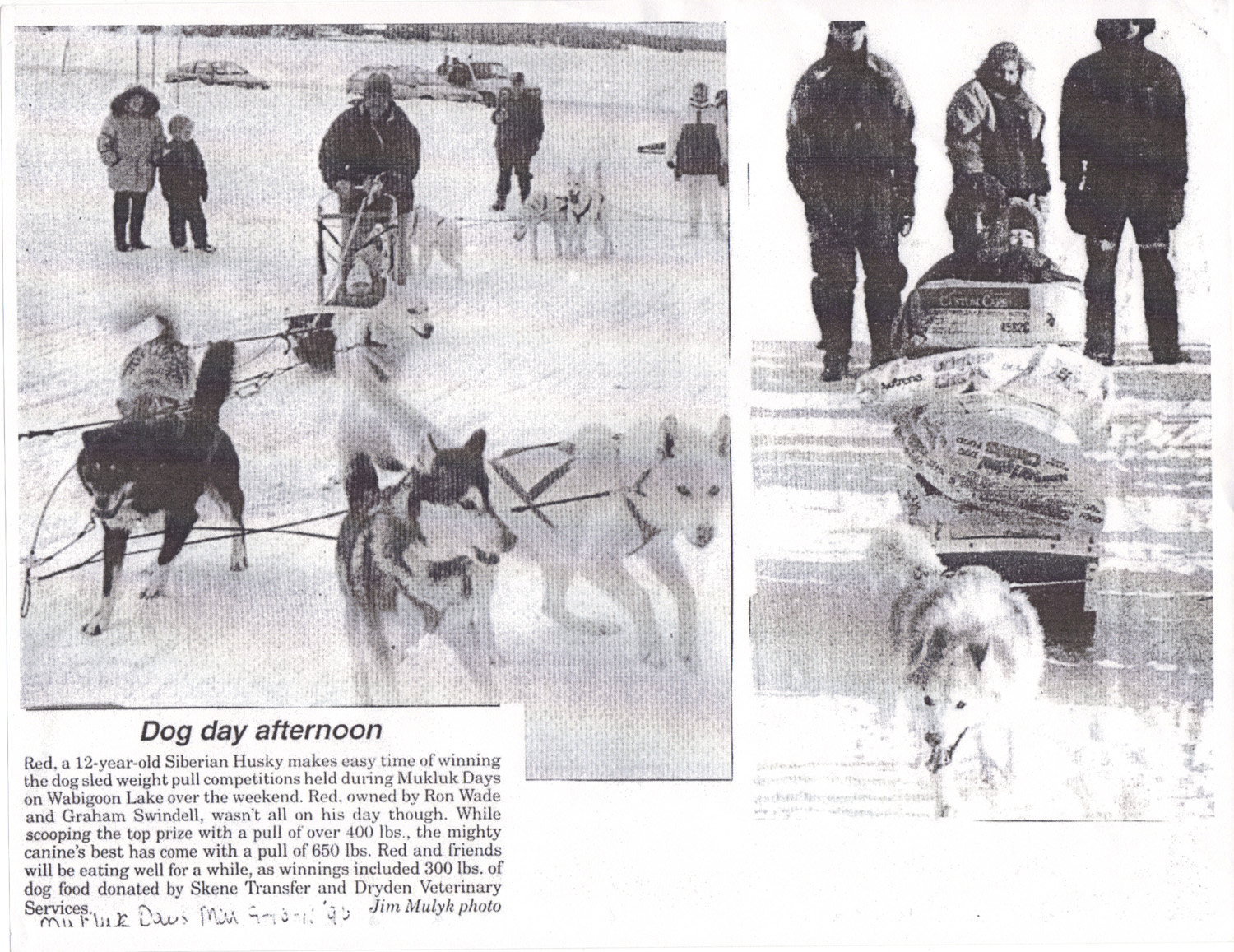
New executive of the Dryden branch of the Metis and Non-status Indian Association
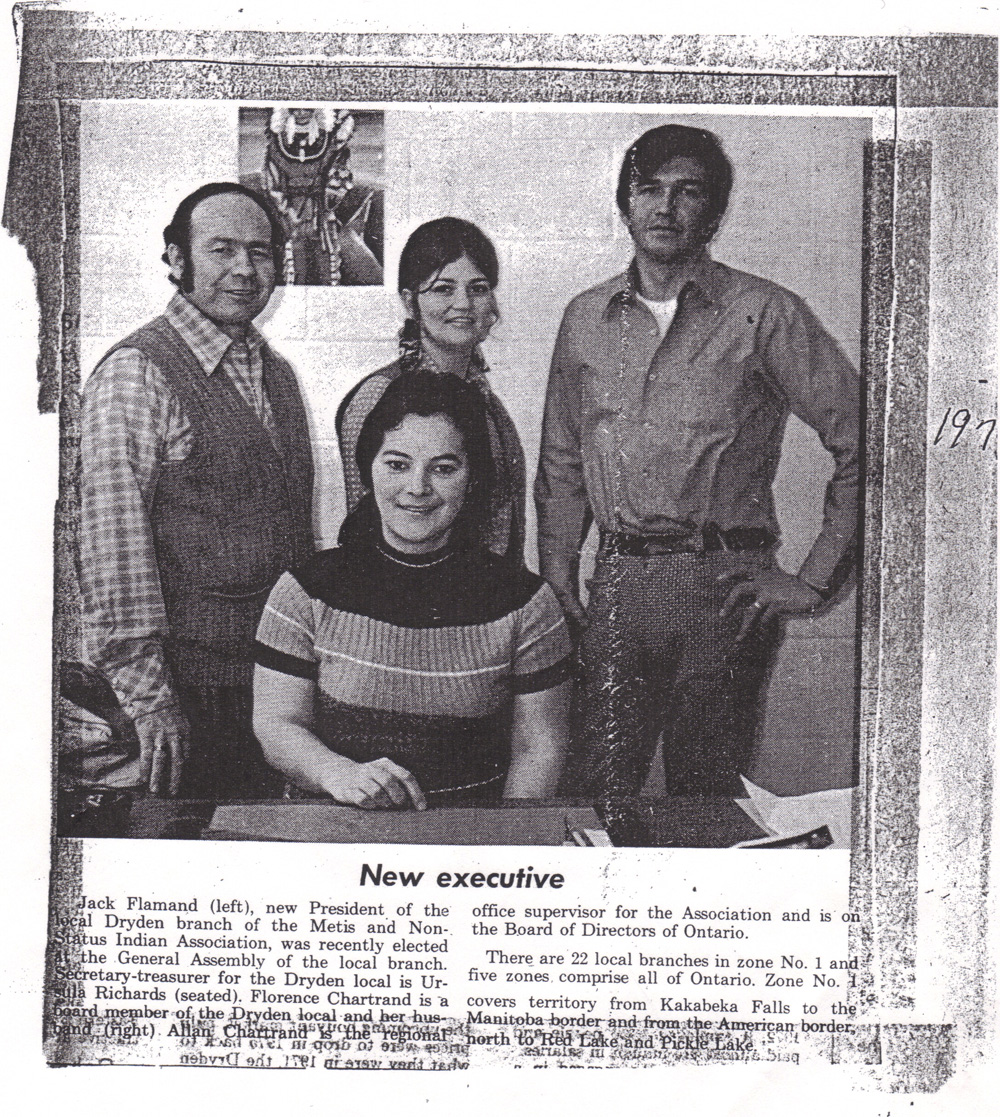
Opening of the first Office of the Metis Association in Dryden
